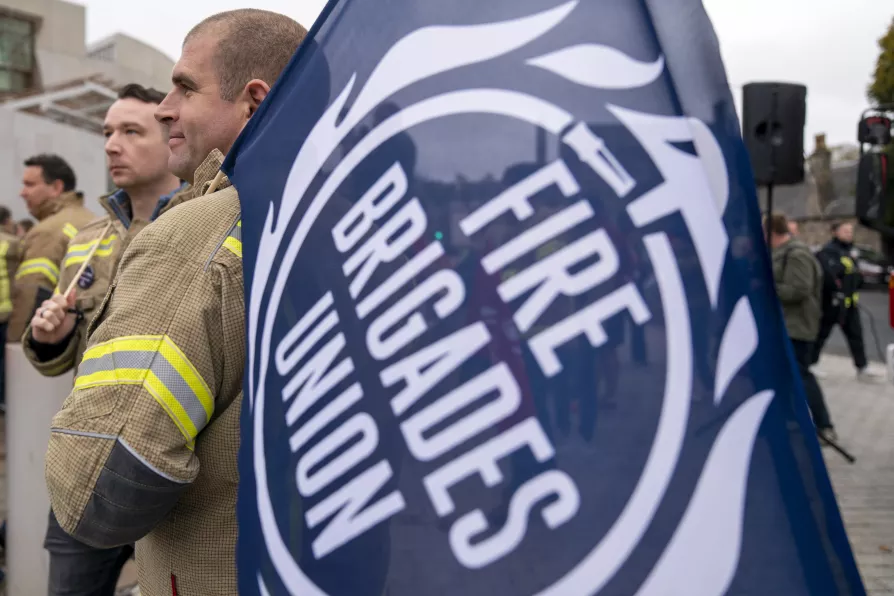
 Firefighters from the Fire Brigades Union (FBU) take part in the Cuts Leave Scars rally outside the Scottish Parliament in Edinburgh, October 26, 2023
Firefighters from the Fire Brigades Union (FBU) take part in the Cuts Leave Scars rally outside the Scottish Parliament in Edinburgh, October 26, 2023
FEMALE firefighters are at increased risk of breast, ovarian and cervical cancers and need annual health monitoring for early prevention of these conditions, Fire Brigades Union (FBU) delegates told the TUC women’s conference today.
They highlighted research showing that firefighters are four times more likely to develop cancer than other people and at a much younger age.
They noted that only 9 per cent of Britain’s firefighters are women, so the research focused mainly on men, and that the Industrial Injuries Advisory Council (IIAC) had failed to recognise cancer as a prescribed disease in firefighters.

The FBU is demanding 52 weeks of full pay for women firefighters, highlighting the unique health risks they face — and the continuing need to recruit and retain more women if policies like this are still not in place, writes SEONA HART













